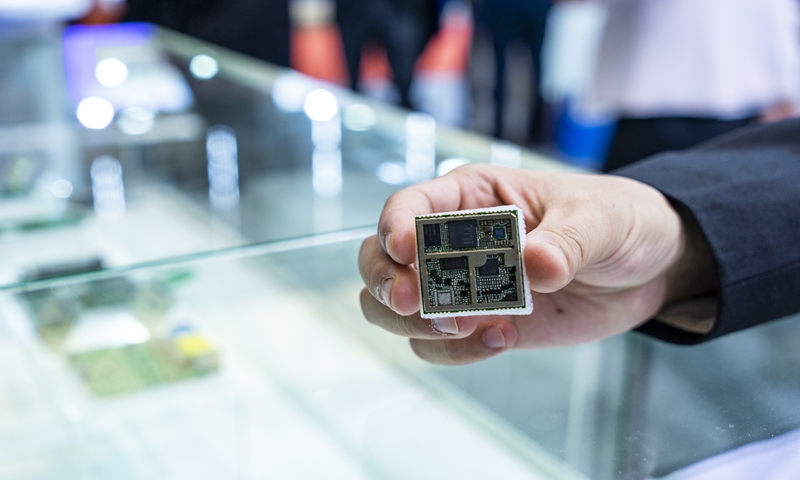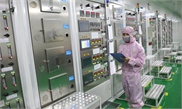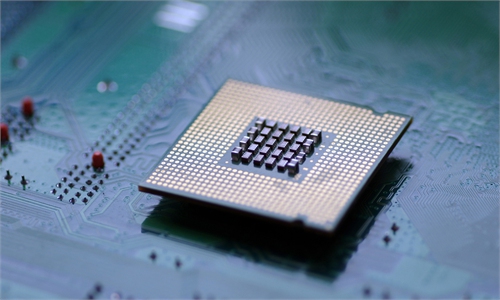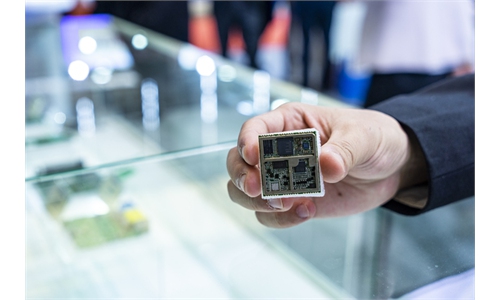
An employee showcases a semiconductor integrated circuit at an industry expo. Photo: VCG
While China's integrated circuit imports hit a record high of more than $350 billion in 2020, analysts said that semiconductor stockpiling by Chinese companies in response to US technology bans won't last long, but imports of chipmaking machines may continue to grow in order to expedite the country's chip localization progress.
"The Trump administration's relentless crackdown on Chinese chipmakers and tech giants put them under a certain degree of pressure and caused a certain amount of panic last year. Ahead of US sanctions, companies like Huawei had to stockpile a large quantity of chips," Xiang Ligang, director-general of the Beijing-based Information Consumption Alliance, told the Global Times on Wednesday.
China imported about 543.5 billion integrated circuits in 2020 amid the coronavirus pandemic, up 22.1 percent year-on-year, according to customs data. The import value was up 14.6 percent year-on-year to $350.04 billion - more than the combined value of crude oil and iron ore.
But this was a "special situation," Xiang noted, adding that stockpiling too many chips may turn out to be wasteful as new iterations of chips usually happen frequently.
Importing chipmaking machines might make things different as they can help China make its own high-end chips, although obtaining advanced lithography machines is not easy for companies like Semiconductor Manufacturing International Corp or Huawei, which are thorns in the US' side.
Under the impact of geopolitics, the Chinese government, investors and companies are all actively promoting chip localization to secure supply chains, so "China will for sure increase investments in semiconductors and import more chipmaking machines to strengthen its capacity to produce chips," Lin Meibing, chief analyst of Wit Display, told the Global Times.
China, which is eager to shake off its dependence on foreign countries in the area of advanced technology, bought 11,619 pieces of equipment and machines to produce semiconductors at a cost of $13.66 billion last year, customs data showed. The value of imports grew 31.2 percent compared with 2019.
The government has designated self-reliance in technology as a strategic goal, and it aims to realize a chipset self-sufficiency rate of 70 percent by 2025, media reported.
Zhou Xibing, a financial writer who follows Huawei closely, pointed out that the bottleneck problem in China's semiconductor industry not only lies in lithography machines but also raw materials such as photoresist, and the Biden administration's position on Chinese technology companies is yet to be seen.




